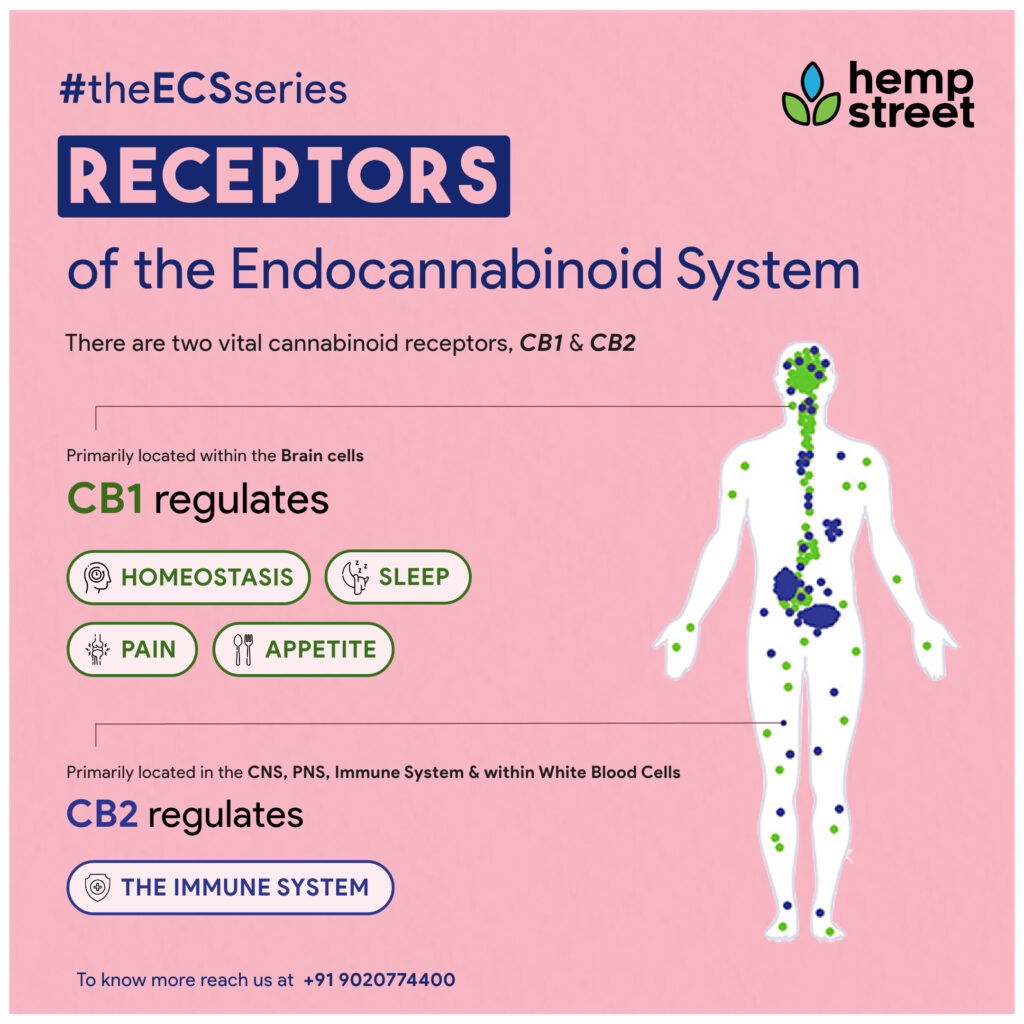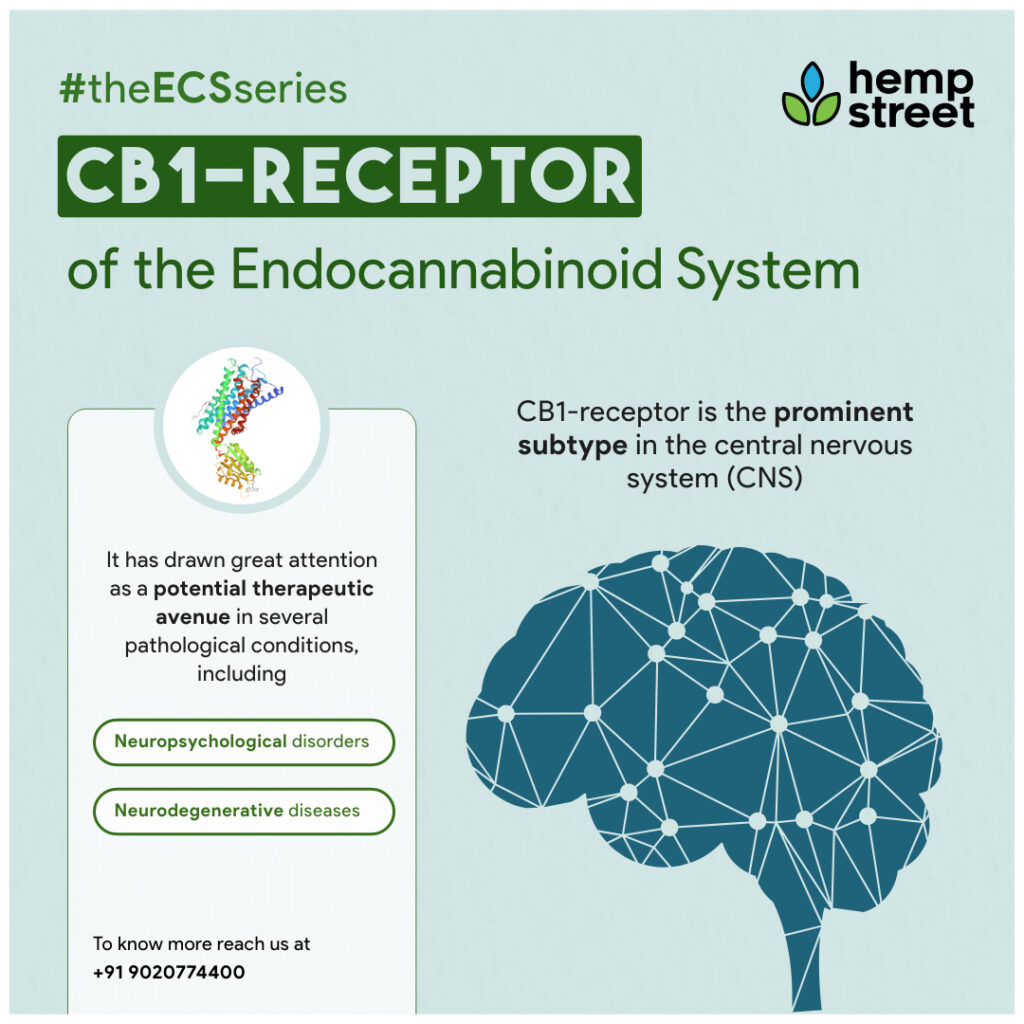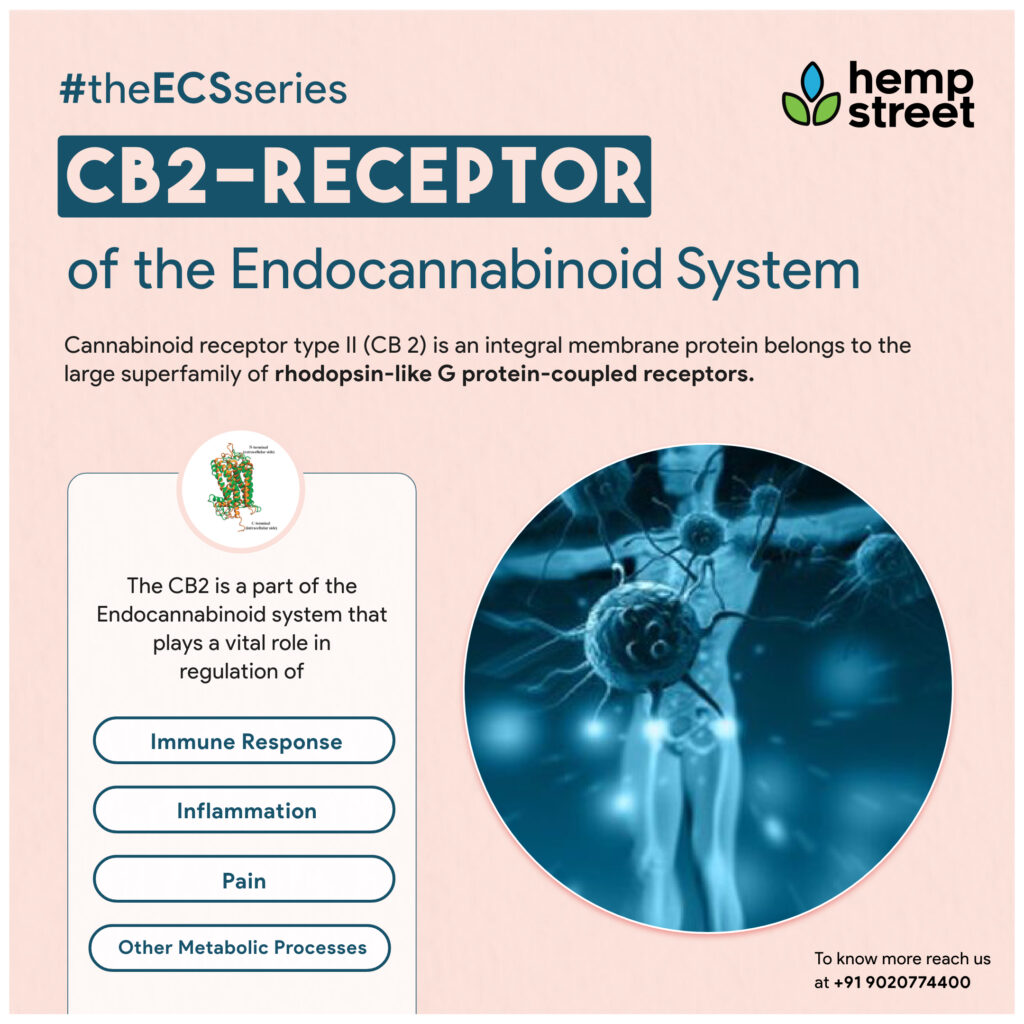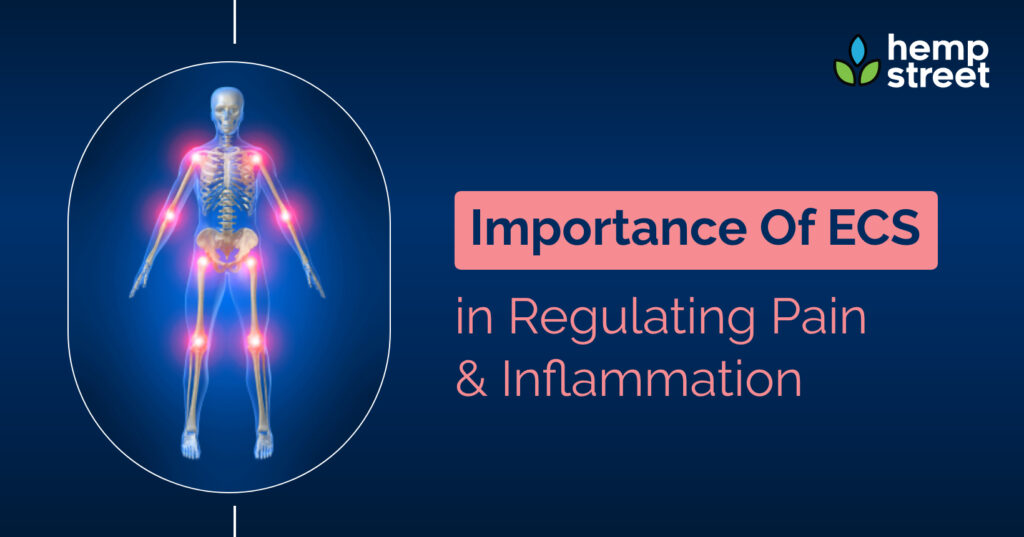Cannabis medicine in India and the cannabinoids in them are highly regarded for their extensive pain-relieving and anti-inflammatory characteristics in Ayurveda. But it’s the Endocannabinoid System (ECS) that makes those cannabinoids bind with its receptors, aiding the cannabinoids in producing the desired health effects.
Today’s medical science has started acknowledging the ECS’s role behind cannabis-based medication and its vital influence on pain, inflammation, and its pathways. Let’s look at it in further detail.
How Does The ECS Help With Pain?
As you might know, the ECS comprises of three fundamental components:
- Endocannabinoids
- Metabolic Enzymes
- Cannabinoid receptors like CB1 and CB2

All these components are plotted throughout the nerve terminals in the body and further extend to the pain pathways above the spine. Endocannabinoids, as per research, have effective anti-nociceptive properties, which means that they aid in blocking painful and injurious stimuli and hence, aid in reducing pain.
Study shows that the ECS and medical cannabis show therapeutic effects against all kinds of pain, be it:
- Acute
- Chronic
- Inflammatory
- Neuropathic
- Menstrual cramps or even
- Caused by a disease like osteoarthritis.
This is why medical cannabis, when bound with the ECS, acts as the best pain reliever medicine.

Cannabis receptors in the ECS, when activated, regulate pain sensation thresholds. They also show collaborative effects with other systems that affect analgesia, including the endogenous opioid system. For instance, the CB1 receptors of the ECS are present in pain-processing regions of the brain and spinal cord. Hence it influences pain control and transmission.
Furthermore, the ECS’ metabolic enzymes like FAAH are very potent therapeutic targets for medical researchers. Because activating the CB1 and CB2 receptors leads to FAAH blockade, which hence produces anti-hyperalgesic and anti-inflammatory effects.

Role of ECS in Inflammation
Certain immune cells like macrophages and mast cells contribute to tissue inflammation. Moreover, some cells produce inflammatory proteins like cytokines and chemokines, leading to further inflammation.
Since the immune response is one of the major bodily functions that the ECS regulates, it plays a vital role in alleviating this inflammation. And it does so at both innate and adaptive immune levels.
Furthermore, activated cannabinoid receptors, especially the CB2 variants in the ECS, inhibit the release of pro-inflammatory cytokine molecules.
Cannabinoids bind to the ECS receptors and act directly on the immune cells. They thus make changes to the local endocannabinoid concentrations. And therefore conduct an anti-inflammatory activity without showing any side effects.
A recent study conducted by the Shahid Chamran University of Ahvaz showed how the endocannabinoid Anandamide acts as a novel inhibitor of inflammasome activation in the body.
Therefore, also helping in easing chronic inflammatory diseases like:
- Type 2 Diabetes
- Cardiomyopathy
- Inflammatory bowel disease (IBD)
- Lung cancer, and
- Gastric carcinogenesis.
Moreover, in the case of arthritis, CB2 receptors bind with CBD from cannabis. Thereby it shows potent anti-arthritic effects and easing localized inflammation and derivative pain.
How Endocannabinoid Deficiency Affects Pain and Inflammation
Clinical endocannabinoid deficiency (CED) in the ECS can be caused by an injury, disease, or genetic differences. And due to this deficiency, the ECS’s function is impaired. An impaired function of the ECS can reduce anandamide levels, causing anxiety, depression, multiple sclerosis, and even PTSD.
Furthermore, it causes the pain threshold to be lowered and functions like metabolism, digestion, sleep, mood, etc., to get disrupted. This deficiency can worsen the pain and inflammation in the body and lead to various diseases and disorders such as:
- Migraine
- Irritable bowel syndrome (IBS)
- Fibromyalgia, etc.
Treating CED: Cannabis Comes To Rescue
To treat CED, it is best to consult Ayurveda doctors who specialize in cannabis medicine. This is because phytocannabinoids like THC and CBD help stimulate the endocannabinoid system and aid its overall state.
Lifestyle changes like exercise and diet help here. But taking proper care of your gut is even vital in ensuring ECS balance in the body. Because the gut microbiomes and their bacteria levels are major ECS regulators. Cannabis acts as a bridge between the ECS and the gut and regulates intestinal motility.
Besides that, getting good sleep is very important for the system to rest and attain balance. But CED can cause the systems to be unrested and go haywire. What more? The resultant stress can even worsen the situation.
Study shows that Cannabis effectively aids in inducing sleep and improves the sleep cycles in people suffering from anxiety and PTSD.
To know more, feel free to contact Hempstreet Medicare and get the best medical consultation on the right medical cannabis dosage and treatment regime for yourself.
Summary
The ECS is a very crucial biological system in the body that regulates various important bodily functions. Due to its presence throughout the nervous and immune systems, it plays a vital role in pain and inflammation.
Its deficiency can worsen pain and inflammation and lead to various diseases and disorders. It can be treated with phytocannabinoids from medical cannabis. This has given rise to further clinical research and cannabinoid drug development for therapeutic uses.
References
https://www.ncbi.nlm.nih.gov/pmc/articles/PMC5685274/#b61-ejr-4-3-210
https://www.leafly.com/news/health/what-is-endocannabinoid-deficiency
https://www.ncbi.nlm.nih.gov/pmc/articles/PMC2834283/




